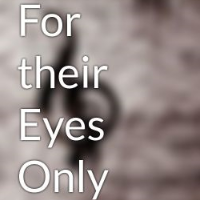California Supreme Court Lets Police Keep Personnel Records from D.A.

In a unanimous decision this week, the California Supreme Court chose state statutory protections for police officers and their personnel files over 14th Amendment due process of law for defendants.
Prosecutors have a constitutional obligation to give defendants any information that affects the credibility of a witness. That includes police officers and any complaint or disciplinary records. But practically speaking, there is no good way to get that information.
In some jurisdictions access to police personnel files goes through a review process controlled by the police department. And those are the enlightened jurisdictions.
In the case before the court, Daryl Lee Johnson of San Francisco was accused of hitting his girlfriend in the head. Prosecutors asked police to check the arresting officers’ personnel files for information that might help Johnson.
They found some stuff and were about to show it to the defense when a Superior Court judge, and then an appellate court, ruled that the prosecutors could just look in the personnel files themselves. No middleman was necessary.
First District Court of Appeals Judge Mark Simons wrote (pdf), “The prosecutor is the only person with access to the entire landscape of evidence that will or could be presented against the defendant at trial.”
San Francisco Public Defender Jeff Adachi exulted after the appellate ruling last August, “A fair trial requires that before a police officer testifies, any history of dishonest or abusive behavior is turned over to the defense. This ruling makes it clear that the buck stops with prosecutors.”
The high court said no way that was happening.
The justices told prosecutors if they want to look at something in police files, they need to follow the same procedures everyone else does when they encounter the Peace Officers Bill of Rights. Since Pitchess v. Superior Court in 1974, that procedure involves asking a judge for specific information in an unseen file and keeping your fingers crossed.
The Los Angeles Times predicted in an earlier editorial what the upshot would be:
“Police officials in many California jurisdictions will continue to be virtual gate-keepers of potentially exculpatory evidence, deciding on their own which records rise to the level of so-called Brady material that they must flag for prosecutors (who, in turn, decide whether to share it with the defense).”
Exculpatory evidence is evidence that can exonerate a defendant of guilt. The Brady reference is to Brady v. Maryland, a landmark U.S. Supreme Court decision in 1963 that fleshed out due process law.
Justice Ming Chin, writing for the high court, had a different take:
“A police officer does not become the target of an investigation merely by being a witness in a criminal case. . . . Treating such officers as the subject of an investigation whenever they become a witness in a criminal case, thus giving the prosecutor routine access to their confidential personnel records, would not protect their privacy interests.”
–Ken Broder
To Learn More:
State High Court Limits Who Can See Police Personnel Files (by Bob Egelko, San Francisco Chronicle)
State Supreme Court Rules in Police Personnel File Case (by Sudhin Thanawala, Associated Press)
CA Supremes Rule on Police Privacy v. Defendants’ Rights (by Celeste Fremon, Witness LA)
A Setback for Due Process (Los Angeles Times editorial)
Appeals Court Streamlines Access to Police Misconduct Histories (San Francisco Public Defender’s Office)
The People v. San Francisco Superior Court (California Supreme Court) (pdf)
- Top Stories
- Controversies
- Where is the Money Going?
- California and the Nation
- Appointments and Resignations
- Unusual News
- Latest News
- California Forbids U.S. Immigration Agents from Pretending to be Police
- California Lawmakers Urged to Strip “Self-Dealing” Tax Board of Its Duties
- Big Oil’s Grip on California
- Santa Cruz Police See Homeland Security Betrayal in Use of Gang Roundup as Cover for Immigration Raid
- Oil Companies Face Deadline to Stop Polluting California Groundwater





